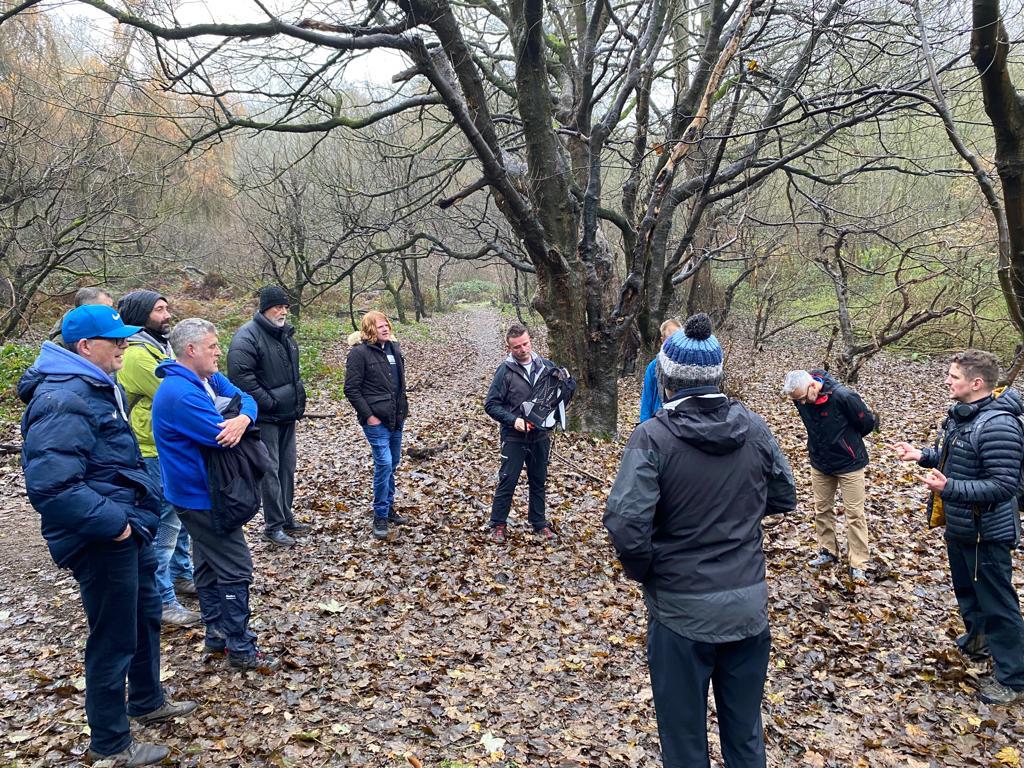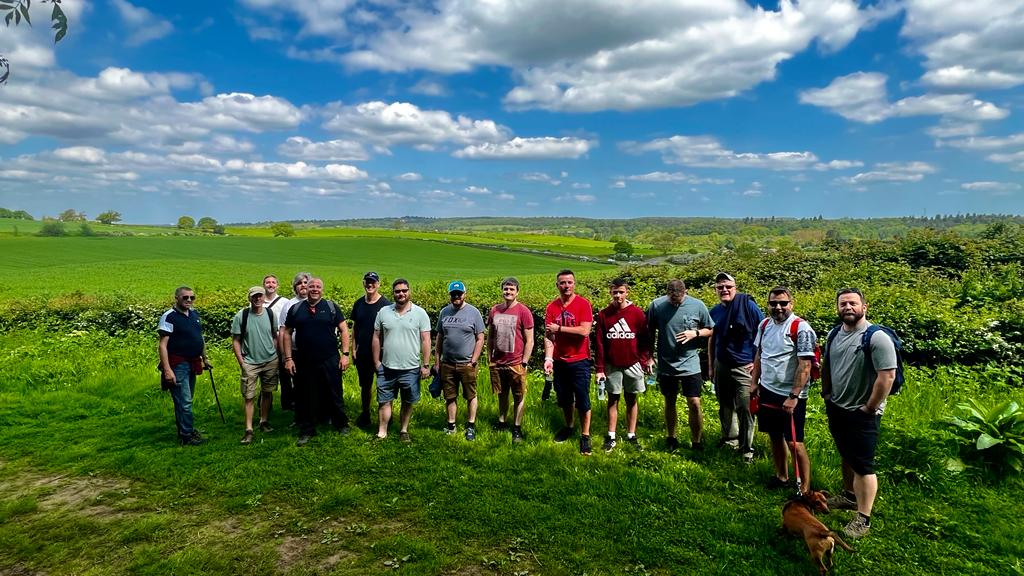Every November, International Stress Awareness Week shines a light on the pressures affecting our wellbeing at work and beyond. This year’s theme – “Optimising Employee Wellbeing through Strategic Stress Management” – encourages employers and employees alike to look at stress not as a sign of weakness, but as something that can be managed with awareness, action, and connection.
For many men, though, that last part – connection – is often the hardest.
From a young age, men are taught to be strong, stoic, and self-reliant. The phrase “man up” is still prevalent, sending the message that people need to be brave and tough enough to deal with difficult situations. The underlying tone is don’t complain, don’t cry, don’t talk about it. While these beliefs may come from a good place, they often keep men trapped in silence when they’re struggling most.

At Walk & Talk for MENtal Health, we see how powerful it can be when men finally open up. A simple walk and a real conversation can break years of bottled-up pressure. This International Stress Awareness Week (3–7 November 2025), we’re joining the call to optimise employee wellbeing through strategic stress management — with a particular focus on the unique challenges men face at work and in life.
Why Stress Awareness Matters
Stress affects everyone, but it doesn’t affect everyone equally.
Men are often less likely to seek support or recognise when they’re burning out. They might work longer hours, isolate themselves, or use distractions to cope – all while quietly carrying the load.
- Around one in three men say they feel constantly stressed at work.
- Men are less likely to discuss mental health with colleagues or managers.
- And men are three times more likely to die by suicide than women.
These statistics remind us that awareness alone isn’t enough. Optimising wellbeing means changing the culture – especially the culture around men and mental health.
Creating Workplaces Where Men Can Breathe
A workplace that takes stress seriously can transform lives. For men in particular, this means creating spaces where it’s safe to speak up, step back, and seek balance.
Here’s some tips on how employers can help:
1. Lead with Openness and Example When leaders talk honestly about their own pressures or boundaries, it sends a powerful message that stress is human, not shameful. Vulnerability from the top helps dismantle the old “man up” mentality.
2. Encourage Movement and Connection Walking meetings or informal “walk & talk” check-ins make conversations more natural. Men often find it easier to talk shoulder-to-shoulder than face-to-face – moving helps the mind open up.
3. Train Managers to Spot the Signs Men under stress might not show it through tears – it may look like anger, withdrawal, or overworking. Equip line managers to recognise these patterns early and start supportive conversations.
4. Promote Recovery, Not Endurance The culture of “pushing through” is unsustainable. Make it normal to rest, to log off, and to recharge. Optimising employee wellbeing means ensuring recovery is seen as productive, not lazy.
5. Provide Clear, Accessible Support From Employee Assistance Programmes (EAPs) to peer groups like Walk & Talk, ensure men know where to turn – and that asking for help is seen as strength, not failure.
By embedding these actions, employers can truly deliver on the ISMA 2025 theme — optimising employee wellbeing through strategic stress management — in a way that supports everyone, especially men who might otherwise stay silent.
Small Steps, Big Difference – what you can do as an individual
If you’re feeling the strain, know this: you’re not alone, and you don’t have to deal with it alone.
Here are practical ways men can manage stress and support their own wellbeing at work:
1. Acknowledge It Saying “I’m stressed” isn’t weakness – it’s self-awareness. Recognising the signs early helps you take action before things spiral.
2. Move Your Body A short walk, stretch, or change of scene resets your mind. Physical movement releases built-up tension and clears mental fog.
3. Talk It Out Whether with a mate, a colleague, or on a Walk & Talk group, conversation changes everything. Talking breaks isolation and helps put things in perspective.
4. Set Boundaries and Take Breaks Turn off notifications after work, eat lunch away from your desk, and protect time for what recharges you. True strength is knowing when to pause.
5. Reach Out to Others Check in with the people around you. Sometimes the strongest thing you can do is ask, “How are you, really?” You never know who needs that question.
Walk & Talk: Turning Awareness into Action
At Walk & Talk for MENtal Health, we believe the best conversations happen side-by-side, out in the fresh air, one step at a time.
By combining movement, conversation, and community, we help men find a safe space to talk about what’s really going on. This simple, human approach to strategic stress management helps reduce isolation, build resilience, and improve overall wellbeing.
As International Stress Awareness Week 2025 unfolds, let’s move beyond awareness into action.
Let’s commit to workplaces (and communities) where men can be open, honest, and supported.
Because real strength isn’t in staying silent.
It’s in walking, talking, and taking that first step toward change.

